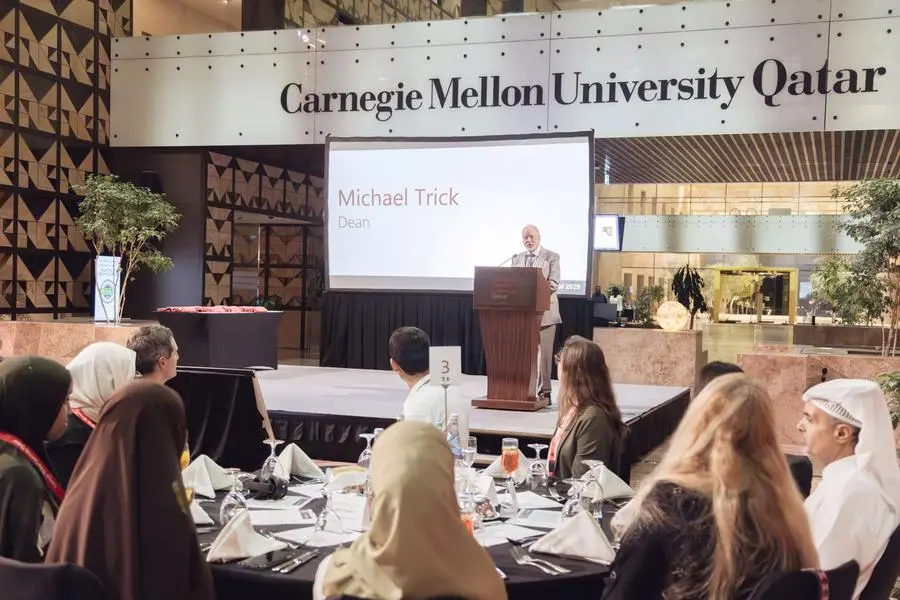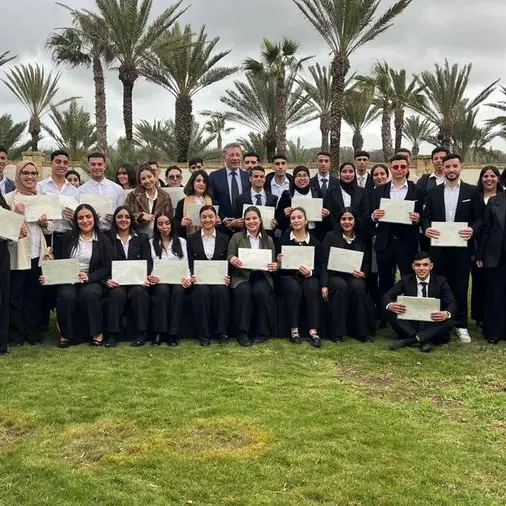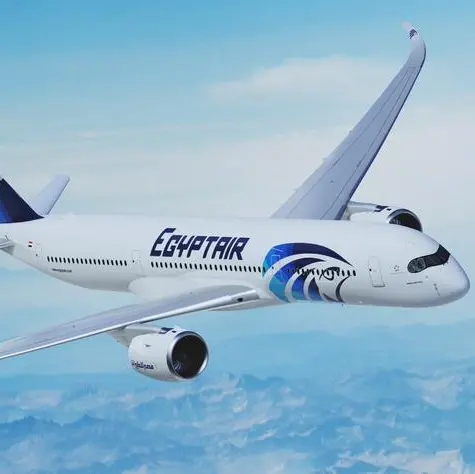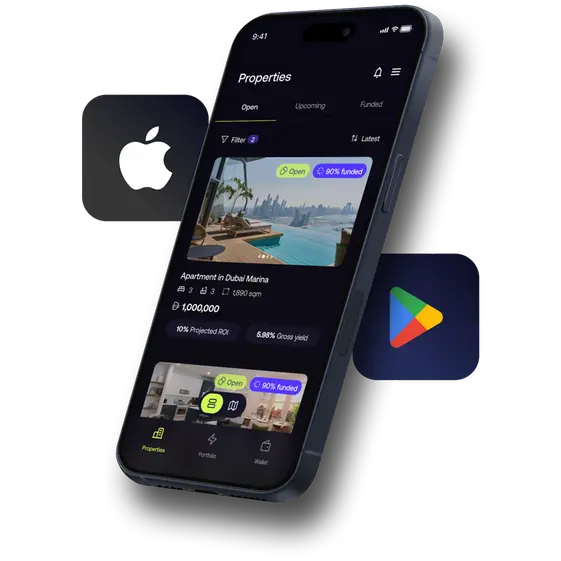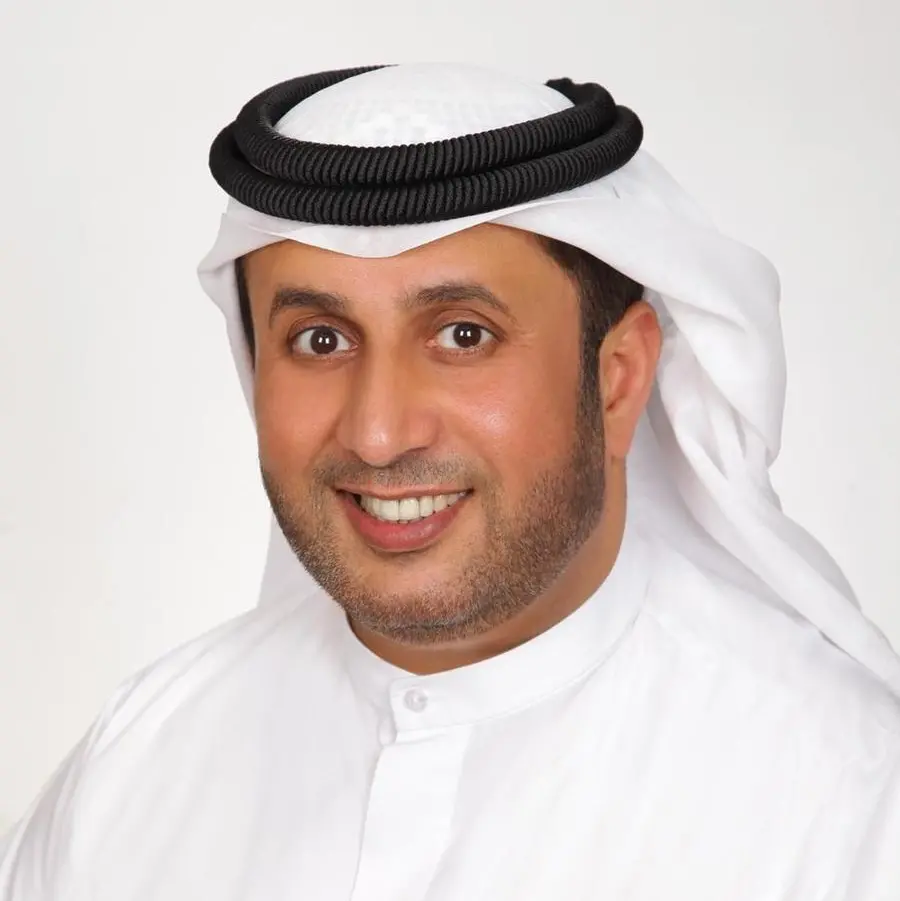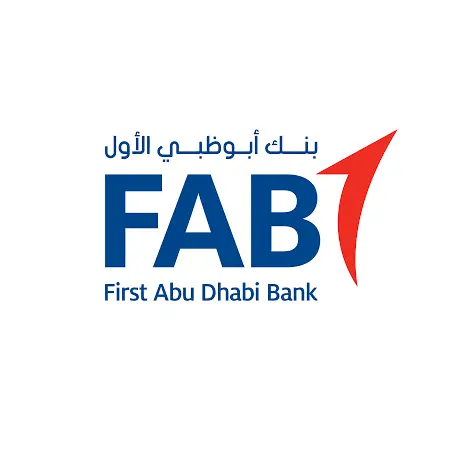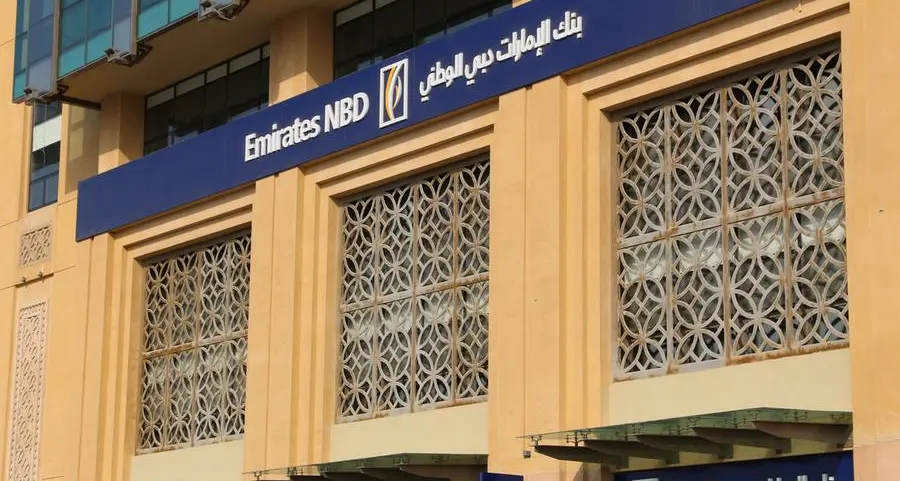PHOTO
Doha, Qatar – Carnegie Mellon University in Qatar (CMU-Q) celebrated the first students admitted into the Class of 2029. The Early Decision dinner was an opportunity for 29 students and their parents to meet some of their professors and mark the beginning of their journey at CMU-Q.
This year saw a record number of applications for Early Decision, which is a category of admission for students whose first choice of colleges is CMU-Q. Early Decision applications are due November 1, and decisions are sent to students in December.
“Early Decision is a category for students who have already chosen their top pick of university,” said Michael Trick, dean of CMU-Q, who personally welcomed the students and their families at the dinner. “We are delighted to welcome this notable group of students. This is the most competitive year ever for admission, and I am very excited to welcome the Class of 2029 this fall.”
The admitted students include 11 Qatari citizens. A total of 12 nationalities are represented among the new students. Decisions for the Regular Decision round will be sent to applicants on April 1.
About Carnegie Mellon University in Qatar
Carnegie Mellon University set its own course with programs that inspire creativity and collaboration. A private, top-ranked and global university, Carnegie Mellon looks beyond the traditional borders of the university campus to have a transformative impact locally, nationally, and globally. In 2004, CMU began a partnership with Qatar Foundation to bring this unique educational experience to the Middle East.
For 20 years, Carnegie Mellon University in Qatar has provided a world-class education in the heart of Education City. More than 1300 graduates have completed their education at CMU-Q, and more than 450 students are currently pursuing studies in biological sciences, business administration, computer science and information systems.
As the CMU-Q alumni network grows, so does the impact that we have on Qatar and the world. Our graduates work at top organizations and innovative startups. They influence government policy, analyze big data, bring culture and the arts to the community, and inspire young people to learn and innovate. They are researchers, creators, entrepreneurs, analysts and educators, and they are working to improve the world around them.
